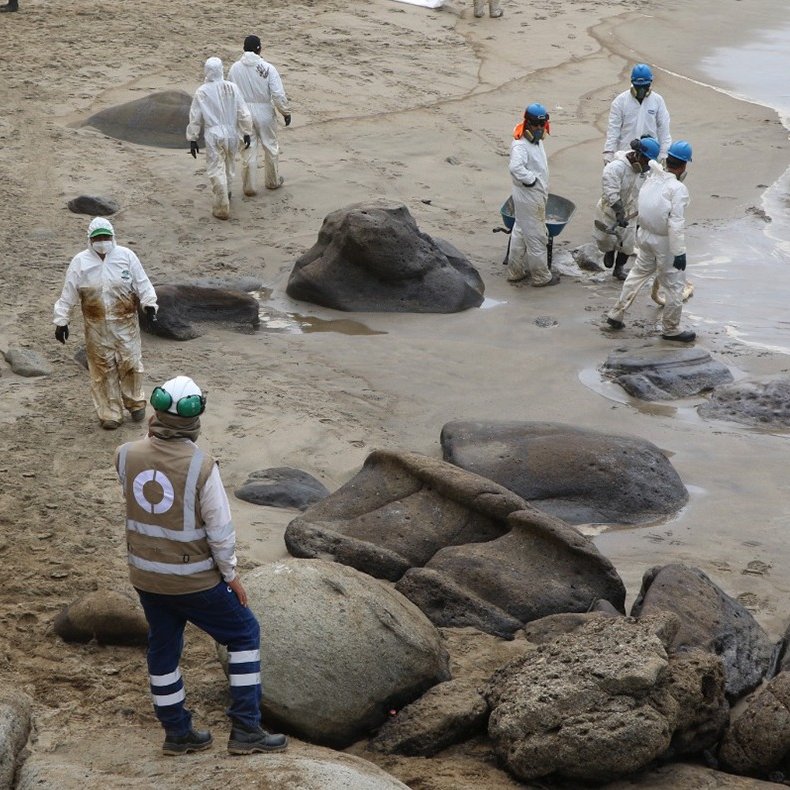The Impact of the Oil Spill on Peruvian Fishing Communities
Oil spills are catastrophic events that can devastate ecosystems and communities reliant on marine resources, such as the fishing communities in Peru. When an oil spill occurs, it can have long-lasting effects on the environment, wildlife, and the livelihoods of those who depend on fishing as their primary source of income.
Crisis in the Waters: How Oil Spills Affect Peruvian Fishermen
Peruvian fishing communities along the coast face severe economic and environmental repercussions following an oil spill. The contamination of fish stocks not only affects the local economy but also poses health risks to consumers. The fragile marine ecosystem suffers from the toxic effects of oil, disrupting the food chain and causing long-term damage to biodiversity.
Recovery Challenges and Community Resilience
After an oil spill, Peruvian fishing communities struggle to recover as fish populations decline, fishing grounds remain contaminated, and marine life struggles to rebound. The road to recovery is long and arduous, requiring significant resources for cleanup efforts, environmental restoration, and support for affected fishermen and their families. Community resilience is key in overcoming the challenges posed by oil spills, with collaborative efforts needed to restore the ecosystem and rebuild livelihoods.
A Call for Sustainable Practices and Environmental Protection
Looking ahead, the Peruvian fishing industry must prioritize sustainable practices and environmental protection to prevent future oil spill disasters. Implementing stringent regulations, investing in oil spill response preparedness, and raising awareness about the importance of preserving marine ecosystems are crucial steps towards safeguarding the livelihoods of fishing communities and protecting the diverse marine life off the coast of Peru.
Legal Actions Taken by Peruvian Fishers for Fair Compensation
Peruvian fishers have resorted to legal action to fight for fair compensation amidst challenges in the fishing industry. The significance of such legal battles cannot be overstated, as they shed light on the power dynamics at play and the struggles faced by those in the fishing sector.
One key legal avenue pursued by Peruvian fishers is holding fishing companies accountable for their labor practices and ensuring that workers are justly compensated for their contributions. These actions often bring to the forefront issues of worker rights, fair wages, and the need for transparent and ethical business practices within the fishing industry.
Moreover, legal actions taken by Peruvian fishers serve as a catalyst for broader discussions on sustainability and environmental responsibility. By advocating for fair compensation, fishers are also advocating for the protection of marine ecosystems and the long-term viability of their livelihoods.
From challenging exploitative labor conditions to demanding adequate remuneration for their work, Peruvian fishers are at the forefront of a movement towards fair treatment and sustainable practices in the fishing industry. These legal battles not only seek justice for individuals but also aim to bring about systemic change that benefits the entire fishing community.
Economic Consequences of the December Oil Spill on Peru’s Coastline
When a devastating event like an oil spill occurs, the economic repercussions can be profound, especially for regions like Peru’s coastline that heavily rely on marine resources and tourism.
Impacts on Fishing Industry
The oil spill’s aftermath can lead to a steep decline in fishing activities due to contamination of fish and seafood, directly affecting the livelihoods of local fishermen and seafood exporters.
Tourism Downturn
With beaches and coastal areas tainted by oil, the tourism industry suffers a significant blow. The loss of tourists and revenue can have long-lasting effects on hotels, restaurants, and local businesses.
Environmental Cleanup Costs
Dealing with the environmental repercussions of the oil spill can incur substantial costs for the government and private sector. The expenses related to cleanup efforts and ecosystem restoration further strain the economy.
Investor Confidence and Economic Stability
The incident can dent investor confidence in the region, leading to hesitance in investing in businesses along the coastline. This lack of economic stability can prolong the recovery process and hinder future growth.
Long-term Repercussions
The economic consequences of the December oil spill on Peru’s coastline extend beyond immediate losses. It highlights the vulnerabilities of coastal ecosystems and emphasizes the need for stringent preventive measures and preparedness for similar disasters in the future.
Ongoing Environmental Recovery Efforts in the Affected Areas
Breaking Down the Headlines
Environmental recovery efforts in areas impacted by human activities or natural disasters are critical for restoring ecosystems and safeguarding biodiversity. By examining the latest initiatives and progress updates in affected regions, we can evaluate the effectiveness of mitigation measures and remediation strategies.
The Bigger Picture
These ongoing environmental recovery efforts underscore the interconnectedness between human actions and the health of our planet. They serve as a reminder of the fragile balance in nature and the long-lasting repercussions of environmental degradation. Understanding and supporting these initiatives are key to ensuring the sustainability of our ecosystems for future generations.
What This Means Going Forward
As environmental recovery efforts continue in the affected areas, we can expect to see improvements in air and water quality, wildlife habitats, and overall ecosystem resilience. Stakeholders, including government agencies, local communities, and environmental organizations, will need to collaborate closely to accelerate progress and address emerging challenges. Looking ahead, increased public awareness and proactive conservation measures will play a pivotal role in shaping a more sustainable future for these regions.
